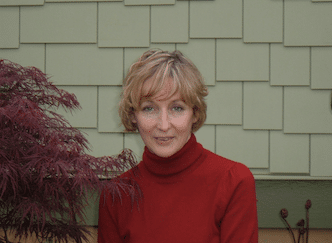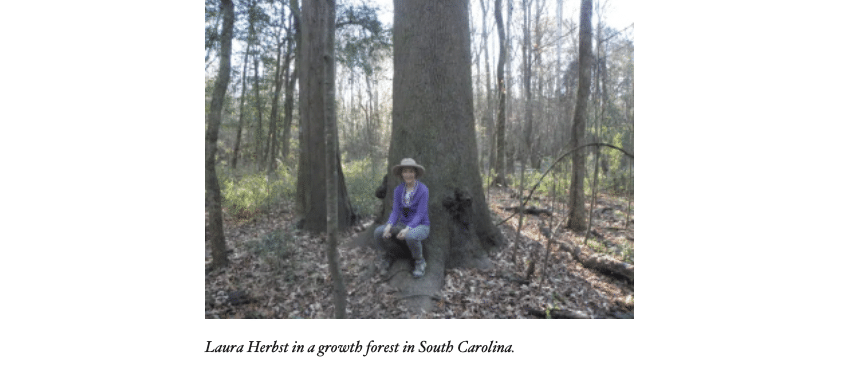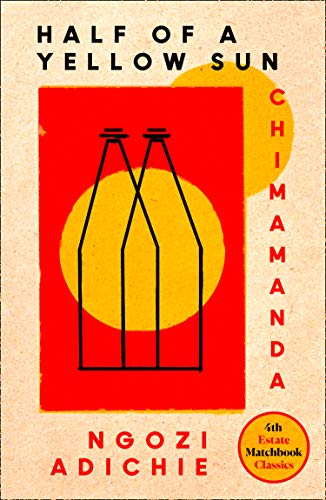We’re thrilled to introduce the 2022 Oregon Literary Fellowship recipients with individual features on our blog! Out-of-state judges spent several months evaluating the 400+ applications we received, and selected nine writers and two publishers to receive grants of $3,500 each. Literary Arts also awarded two Oregon Literary Career Fellowships of $10,000 each. The 2023 OLF applications will open in May 2022. The deadline to apply is Friday, August 5, 2022.

Laura Herbst writes about girls and women who overcome troubled families, tyrannical figures and oppressive thinking. Her current novel is set in Togo, in West Africa, where she was a Peace Corps volunteer, and explores the struggles of an orphan girl. She has been awarded the New Millennium Writing Award for Fiction, the Kay Snow Award for Fiction, and the Doris Betts Fiction Prize. Her work has appeared in The Sun, The Timberline Review, North Carolina Literary Reviewand elsewhere.
Category: Leslie Bradshaw Fellowship
Pronouns: She/her
Q&A with Literary Arts
Who are some writers you look up to or who move you to write?
First, I think about the great characters in American literature who have become part of my psyche because they have been so important to my development as a person. I think about Scout Finch in To Kill a Mockingbird (Harper Lee), a little girl wrestling with some of the horrific realities of her culture without completely losing her child-like innocence, without losing her ability to love and to reach out to others. I think about Celie in The Color Purple (Alice Walker) because she faced such injustices but she had love in the end; she was able to express herself. I think about Olive Kitteridge, that devastating portrayal of a narcissistic mother so masterfully written by Elizabeth Strout. And I think about Johanna in News of the World (Paulette Jiles) and that delightful moment in the middle of the book when Johanna yelps her war cry.
What are your sources of inspiration? Of joy?
I find nature inspiring, the sea and the forest. I am moved by the salmon swimming up the rivers and the southern resident orca whales trying to take care of each other.

I am moved to see the women of the African savanna walking miles to bring water back to their families. I am moved by the long-standing struggle for democracy in Togo, a West African country, and in Ukraine, as the people there try to keep their democracy intact and stop Putin’s totalitarian takeover.
How would you describe your creative process?
Simply I work very hard, many hours every week, most days. I try to stay away from social media as it takes me out of the places I need to dwell to find what’s true in my work.
What is most exciting about receiving a fellowship?
The recognition of my work after many years of quietly working away is very nice.
What are you currently working on?
I’m putting the finishing touches on my debut novel, set in Togo, in West Africa, where I served as a Peace Corps volunteer. It’s about a North Carolina missionary family who come to steal the sacred power fetishes from a West African village, and it’s told in the voice of a 12-year-old girl struggling because her mother just died.
I’m also working on my second novel, which is set in the Pacific Northwest.
What has kept you writing through the pandemic? Has your process changed? Has the content changed?
During one period during the pandemic, I did not write. I was shocked at how miserable I was. Writing has helped me to navigate the pandemic. In my second novel, I have scenes where my protagonist is dealing with the pandemic.
What advice do you have for future applicants?
I don’t have any advice that’s obvious as I’m not a judge. But in terms of writing, it’s to stay true to what you must stay true to. And you know what that is. No one else can tell you.
Any book (or movie, show, album, etc. ) recommendations?
I recommend Mariama Ba’s So Long a Letter; in this slip of a novel, the writer opens up the entire world of men and women relations, the entire world of Senegal.
Also, The Lover by Marguerite Duras, which uses eroticism to turn white privilege on its head, but the eroticism never seems perverted.

Lately, I’ve been attracted to fiction with some magical elements. So, I recommend Helene Wecker’s The Golem and the Jinni. Also, I’ve enjoyed in The New Yorker this year Lauren Goff’s Annunciation and Olga Tokarczuk’s Yente.
Half of a Yellow Sun, a novel by Chimamanda Ngozi Adichie, gives the taste and feel of the Biafran War in Nigeria, through characters who are affected by the war’s persecutions.
The Overstory by Richard Powers was an important recent book that told the story we need to hear about our Pacific Northwest forests, how they help us, how we have abandoned them to logging and other narrow-minded interests.
Excerpt from Little Ancestors
Today, birthday thirteen, emotions ball up and end in t-i-o-n: like dejection, trepidation, frustration, adding up to a feeling of isolation to the point of exasperation! I try to stop thinking about Mama, about ever having a Mama. It’s night and hot, and I stick plastic thongs on my feet, pull a towel around me, and plunge into the dirt furrows. I need to go cool off. I grip the wire handle of a lantern; it sputters and shines the way through Bibabé’s field. I don’t expect Aunt Melba or Uncle Taft to remember what day it is; almost no one au village pays attention to a calendar. Still, I know it’s March 16, 1984, almost a year since Mama died, and I creep through the furrows, slowly now, careful where I put my toes because the little ancestors can trip you if you don’t watch out. And I do watch out, guided by the faint circle of the lantern’s light, nubs of millet stalk scraping my ankles.
No, Bibabé didn’t want me to know they were there, the wooden figures rising from her field as she cut away the wind-dried stalks and collected stubble for her cooking fire, as the furrows became so bare the dirt cracked in the sun and smelled like bad breath, as the harmattan blew and exposed the tops of what looked like heads. I’d point, saying – voilà, voilà – in awkward French. She’d say – what? what? – in her local Benga, as if there was nothing there. Maybe I tuckered her out. Maybe she felt sorry for me. Maybe I’ve learned to say lafia and n fá at the right moments. Because days ago she clicked her tongue: ma petite fille, she said, and even I could understand the exhausted patience in her voice as she admitted, finally, that the wooden statues with long arms, quiet slit mouths and steady eyes were like people who once lived, like her Mama, she said, and mine.
Judge’s Comments
“Laura Herbst’s keenly observed, evocative short story, “Little Ancestors,” is stunningly good. Excerpted from a novel-in-progress and told from the perspective of an orphaned girl coming into adulthood while living in Togo with her missionary uncle and aunt, “Little Ancestors” captures the texture and feel of life in rural West Africa. Herbst’s characters, Togolese and American, are mysterious yet fully realized. The action of the story ratchets up with each new scene, as the narrator passes into womanhood. I read, completely rapt.”
– David Wright


